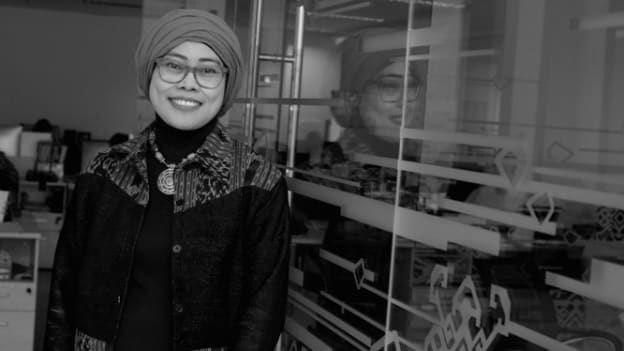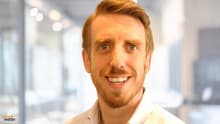Leverage tech to stay strong during disruption: HR Director of Blue Bird Group

Indrijati Rahayoe, HR Director of Blue Bird Group, specializes in collaborating with business leaders in order to leverage the expertise of a diverse talent pool. Having started out as a management trainee on the shop-floor in a factory with Unilever, Rahayoe is now leading the entire HR function at Blue Bird, a taxi-hailing service that caters to drivers and riders in Indonesia.
As a certified assessor for talent and organization assessment from BAIN & Co., Rahayoe has conducted skillful assessments of talent readiness, organizational capability, and culture of long-term and short-term growth in a company. Apart from Indonesia, she has amassed an experience of more than 15 years in the HR landscape.
In an exclusive interaction with People Matters, Indrijati Rahayoe discusses her career journey from the FMCG industry to pharmaceuticals to a conglomerate such as the Blue Bird Group which has several other lines of business apart from the most popular taxi-hailing service.
Describe your journey in the HR domain having started out as a management trainee working on the factory floor.
The journey has been challenging at times but inspiring as well. Yes, I started out as a management trainee for Unilever and shifted towards the role of Factory HR Manager for the brands of Lifebuoy and Lux. I happened to be one among two women working in the factory! In a male-dominated sphere, this experience definitely provided me certain learnings and inspiration at the same time. I was assigned to manage a group of 270 people who were directly reporting to me.
There was a switch in my HR career in 2007 and I took the opportunity to expatriate to Singapore in 2009. My first two years in HR were centred on the Philippines, Malaysia, and Singapore. Talent management and employer branding of Unilever in every country where it operated were the chief concerns at the time. The difference in the growth of the country and the growth of regional offices in Malaysia and Singapore witnessed a rapid growth of people in regional office from 800 in 2009 to 1500 in 2011 reveal the struggle in employee branding.
We needed to build up local Singaporean talent in the regional offices instead of expatriates or people from other countries who have an unsustainable future. I worked three years intensively in the FMCG sector to build the employer brand on a global level. I also visited universities in Italy to give lectures on marketing. I returned to Indonesia in 2011 and continued to pursue the role of a talent manager where branding had to be given more importance. Organising student competitions on a regional and national level helped in promoting this purpose. In Indonesia, there is a wide scope of local talents and the common trend set by the talents in this region resorts to gain experience from different regions, to understand others by moving out of the comfort zone or home country. During the three years spent in Bayer, with the experience of a general role in HR in the multinational pharmaceuticals, I learned how to manage the talents in the pharmaceutical industry where marketing cannot be done directly, unlike FMCG.
I joined Blue Bird in 2016 as it offered me a chance to be a part of an industry that is going through transformations since the transportation industry is a major area of disruption.
You mentioned that the transportation industry is one of the primary sectors facing disruption in the way technology is redefining the way of doing business. What are the major challenges when it comes to managing talent in this sector when you think about companies like Blue Bird?
Taxis hold seventy percent of the business of Bluebird and apart from that we concentrate on property, workshop, IT infrastructure and heavy equipment. I manage everything to the holding level instead of the operational level. We have around 5,700 employees and 20,000 drivers who are paid for their work in the taxi company.
When it comes to the transportation sector, there is often an unpredictability about the future. Blue Bird managed to overcome this by foreseeing the disruptions from 2014 onwards and engaged with BCG in 2016 to lay down the blueprint for the upcoming three-to-five years of business. Our company has been existing for 46 years and growing rapidly with distinct business models. Instead of following the models of competitors, we decided to strengthen our weaknesses especially in answering the changing market expectations, to remain true to our core values and to empower our services in order to bring our customers back. For instance, we have three channels to book the taxis according to the previous business model such as mobile apps, phone calls and street hailing which forms the fifty to sixty percent of the orders. The first challenge I perceive that of blueprint is the ability of the people to keep pace with the transformational speed of business. An intensive mindset has been developed to ensure the transformation of leaders since business outcomes stem from the success of a person. The communication process is critical in understanding where we are and what we are trying to do. An effective communication between managers and employees is crucial in getting everyone aligned with the business goals. We did a series of interventions on mindset shifting that demanded central home works. Marketing has also undergone changes as an impact of disruption leaving the HR leaders with the onus to attract the attention of the customers and/or candidates. If we look at the two year transformation, we are getting better in this disruption. The speed is still a challenge that we are facing and we keep on finding innovative ways to improve our services since the competitors are not the same in all the time.
How do you think the employee mindset changes when faced with a dynamic digitalization process?
Digitalization is the way in which we run our business. That’s why the employees’ buy-in is essential to the core of our business. They are the ones who are the true champions of change. We have started to reap the benefits of artificial intelligence as it helps us calculate and predict the possible passengers that Blue Bird might get through the app.The transportation industry is at such a highly competitive juncture that our employees are all trained in the use of smartphones. All drivers especially are encouraged to overcome the traditional mindset and embrace the use of new technologies, software and smartphones to drive higher business.
How do you adopt the right HR technology and what are some of the best practices that you would recommend?
Expansion of a business is possible when various functions within the organization start adopting new technologies and the HR function is not an exception. At the basic level, it begins by leveraging technology to gather data about the people in your company. . Blue Bird is fortunate to have an employer brand as it is known as a disrupter in the taxi industry, having established the first legal taxi business in Indonesia. Most candidates join our organisation because they see the way the organizational culture is based on the concept of “work is family” and are attracted to the way the organizational leadership treats employees at different levels. Once an employee is appointed in the company, the person becomes a member of the Blue bird family forever. We provide boarding houses for the drivers so that they have a place to rest. Educational assistance is provided to their children and their wives are empowered with the skills they have, such as cooking. Thereby, we witness a social impact through employee engagement.
What are the trends that you foresee in 2019 regarding your industry and organization?
The year 2019 is going to be crucial for Blue Bird especially because of competition based on digitization and technology. We maintain an optimistic view of the future of business by strengthening our confidence in the core without changing it while expecting a new productive leadership. HR will be transformative in bringing all the employees--especially the drivers closer to the company and the riders by leveraging smart-phone technology that facilitates this new-age business model.
















